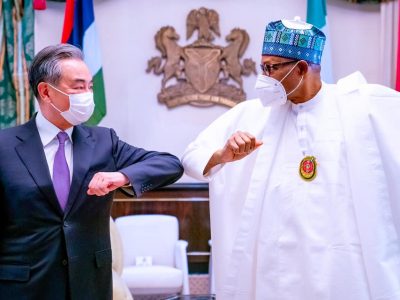
Fiston Mwanza Mujila(照片:Jürgen Fuchs/經許可使用)
(原文發表於 2021 年十一月十二日)
在 2021 年,坦尚尼亞作家 Abdulrazak Gurnah 獲頒諾貝爾文學獎之後,非洲文學似乎終於得到了應有的關注。然而,剛果裔的奧地利作家 Fiston Mwanza Mujila 卻認為,非裔作家──尤其是法語系的非裔作家──仍然不太受到重視,而這讓年輕一代的非裔作家紛紛轉向,持續探索以不同語言來進行創作的可能。
2021 似乎是屬於非洲文學的一年。除了諾貝爾文學獎,另有多項文學大獎也頒給了非洲或非裔的歐洲作家:常被視為諾貝爾風向球的紐斯塔特國際文學獎在當年宣布,其 2022 年度的獎項得主為塞內加爾小說家 Boubacar Boris Diop;2021 年度的卡蒙斯文學獎,頒給了來自莫三比克的 Paulina Chiziane;當年的布克獎及布克國際獎則分別頒給了南非作家 Damon Galgut 和擁有塞內加爾血統的法國作家 David Diop;至於法國最負盛名的文學獎項龔固爾獎,則花落塞內加爾作家 Mohamed Mbougar Sarr。
但就憑這些,要說〔非洲文學已經揚眉吐氣〕,是否又過於武斷了呢?
要知道,上一次有非洲作家(John Coetzee)獲得諾貝爾獎是在 2003 年;而上一次有黑人或多族裔作家獲頒龔固爾獎,也都是 1992 年(Patrick Chamoiseau)和 2009 年(Marie NDiaye)的事了。
全球之聲為此採訪了生在剛果民主共和國(又稱「剛果─金夏沙」或「民主剛果」)、長於南方大城盧本巴希的 Fiston Mwanza Mujila,想聽聽他身為法語系非裔作家的個人體會。Mujila 以史瓦希利語為母語,但接受的是法語教育;目前他住在奧地利的第二大城格拉茲,並在當地創辦了國際級的文學慶典 Weltwortreisende(意為「世界文字旅行者」)。他以德文進行劇本創作──其風格深受 Peter Handke 與 Elfriede Jelinek 的影響,成果曾被搬上維也納和柏林的舞台;寫小說的時候,他用的則是法文──首部作品《Tram 83》(83 路電車)出版於 2014 年,曾被翻譯為十餘種語言,並為他奪得包括德國(世界文化宮頒發之)國際文學獎在內的多個獎項,而他的最新力作《La Danse du Vilain》(惡棍之舞)也已於 2020 年問世。除此之外,他還寫詩,並在 2013 年出版了《Le Fleuve dans le Ventre》(腹流河);該詩集已被譯為英文。他說,自己就是個詩人,只不過碰巧也寫寫劇本和小說罷了。
(譯註:以上作品似無中文版本,本段所列書名皆屬暫譯)
根據 Mujila 的說法,相較於英語系的非裔作家,法語系非裔作家所要面臨的挑戰只多不少;而法語文壇的基本生態,便是其中最大的挑戰:
Alors que le Nigéria qui est une grande nation littéraire a des portes d‘entrée dans les maisons de renom aux US ou en Grande-Bretagne, l’écosystème littéraire est plus complexe pour les littératures francophones: Paris reste le seul centre de gravité et, souvent, de légitimation. Bruxelles et Genève sont plus au moins à la traîne.
While Nigeria, a large literary nation, has a door open into all major publishing houses in the US and the UK, for Francophone literature, the literary ecosystem is more complex: Paris remains the only center of gravity, and often, of legitimacy, while Brussels nor Geneva are more or less left in the back.
在奈及利亞這樣的文學重鎮,一個人要想打入英美的主流出版社並不是什麼難事;但法語文壇的生態要複雜得多:巴黎才是一切的中心,一般來說也代表了正統;就連布魯塞爾或日內瓦,都只能靠邊站去。
而在他看來,非洲法語文壇的狀況也好不到哪裡去:
En Afrique anglophone, le Nigéria, le Kenya et l'Afrique du Sud sont les grands pôles littéraires avec leurs revues comme Kwani? et Chimurenga, des maisons d’édition comme Cassava Republic. Pour l’Afrique francophone, le Sénégal et le Cameroun jouaient jadis ce rôle, par l’entremise des Nouvelles Editions Africaines du Sénégal et les éditions Clé. Au Congo-Kinshasa, nous payons les pots cassés de nos turbulences politiques. La littérature demeure encore un objet rare et désirable même si des initiatives d’ordre privé essaient de palier à la carence d’une politique culturelle nationale. L’institution de prix littéraires, tout comme la création des bibliothèques et des maisons d’édition sont une nouvelle espérance. Mais seuls la décoration et les bâtiments ne suffisent pas. Je suis persuadé que la matrice littéraire d’un pays dépend pour beaucoup de la qualité de son enseignement et du niveau de vie.
In Anglophone Africa, Nigeria, Kenya and South Africa are the main literary hubs with their own magazines such as Kwani? and Chimurenga, as well as publishing houses such as Cassava Republic. For Francophone Africa, Senegal and Cameroon played that role in the past, thanks to publishing houses such as Nouvelles Editions Africaines du Sénégal and éditions Clé. In Congo-Kinshasa, we pay the price for our political instability. Literature remains a rare and desirable object even if private initiatives try to compensate for the lack of a national cultural policy. The creation of literary prizes, libraries and publishing houses brings hope, but just having buildings and the decor is not enough. I am convinced that the literary matrix of a country depends largely on the quality of its educational system and of its living standards.
以非洲的英語系國家來說,文風最為鼎盛的當數奈及利亞、肯亞和南非──他們不但擁有 Kwani? 和 Chimurenga 等雜誌,也有像 Cassava Republic 這樣的出版商;而過去塞內加爾和喀麥隆之所以能在非洲的法語文壇扮演要角,也是多虧了 Nouvelles Editions Africaines du Sénégal、éditions Clé 等出版社〔的耕耘〕。但在民主剛果,政局不穩卻讓我們付出了代價──我們沒有一套完整的文化政策;即便民間試圖補缺、做了許多〔推動文學的〕努力,卻仍是文風難振。雖然說,設立文學獎、圖書館及出版社確實為我們帶來了一線曙光,但空有這些卻是不夠的。我深信,唯有健全教育體系、提升生活水準,才能讓一個國家的文學好好地茁壯起來。
語言背後的哲學思辨──工具語言之兩難
對於許多在後殖民國家長大的作家來說,該透過何種語言來進行創作,往往都不是個容易的抉擇──社會氛圍使然,個人對於特定語言的選用有時〔很難被視為一個單純的選擇〕,也很難不為自己招來「忘本」的罵名。於是有些作家會另闢蹊徑,有意識地選用既非自己母語、也非殖民語言的第三種語言來進行寫作──比方說,孟加拉裔的美國作家 Jhumpa Lahiri 便選擇使用義大利語來寫小說。Mujila 也分享了自己對此的思考、以及將來可能嘗試的方向:
Si j’ai réussi à vivre en Autriche, c’est aussi parce que je viens de Lubumbashi au Congo, donc un endroit où la capitale Kinshasa ne joue pas de rôle important, et où Lusaka ou Johannesburg jouent un rôle plus grand car plus proches. Les gens du sud du Congo ne vont pas forcément en France ou en Belgique quand ils quittent le pays, et ne s’associent pas forcément aux communautés congolaises de l’étranger qui sont majoritairement lingalophones. Au sud on parle d’autres langues, comme le swahili.
J’ai parfois l’impression d’avoir trois ou quatre vies en même temps, car même si j’écris en français je ne le pratique pas au quotidien, j’écris en allemand qui est ma sixième langue, en dehors du swahili, du lingala et du tshiluba qui la langue de mes grands-parents. Quand j’écris en allemand, je dois me préparer, pareil en français, c’est le même rituel de préparation, c’est toute une expédition, je note des mots qui viennent à l’esprit, je recopie une page de Camus pour me replonger dans le bain linguistique. Mais depuis deux mois je me demande si je ne devrais pas changer catégoriquement de langue et ne plus écrire qu’en allemand. Je n’exclus pas d’abandonner le français.
The reason I managed to survive in Austria is that I do come from Lubumbashi, a place where the capital Kinshasa does not play a key role; Lusaka or Johannesburg are more important because they are closer. People from southern Congo do not necessarily go to France or Belgium when they leave, and do not always get together with the Congolese diaspora who speak mainly Lingala. In the south we speak other languages, such as Swahili.
Sometimes I have the feeling that I lead four lives at the same time, because even if I write in French, I do not practice that language daily. I write in German which is my sixth language, besides Swahili, Lingala, and Tshiluba, the language spoken by my grandparents. When I write in German, I need to prepare myself; the same with French, I have rituals to get prepared, it is like an expedition. I note down words that come to mind, I write down an entire page from Camus to reenter the linguistic environment. But for the past two months, I started asking myself if I should not switch categorically and write in German only. I do not exclude completely abandoning French.
我之所以能在奧地利〔文壇〕生存下來,其實是因為我是盧本巴希人──比起我們的首都金夏沙,(尚比亞的)路沙卡、(南非的)約翰尼斯堡離我們都要近了許多,對我們的影響自然也大些。我們這些南部人要離開家鄉的話,通常都不太會選擇法國或比利時,也不太會和那些慣說林格拉語的剛果僑民混在一起;我們在南邊都講別的語言,比方像是史瓦希利語。
(譯註:尚比亞和南非都是英語系國家;而英語不在比利時官方語言之列)
有時候我會覺得,自己好像是遊走在四種生活之間,因為即便我用法語寫作,但我平常其實用不到它。我也用德語寫作;它是我的第六語言,排在史瓦希利、林格拉語和契盧巴語之後──我祖父母都說的是契盧巴語。用德語寫作的時候,我會需要事先做點準備;用法語寫作的時候也是一樣。我有一套自己的小流程,有點像是一種〔語言的〕探索之旅──我會把想到的詞句先寫下來,或者抄寫一頁卡繆,好讓自己重新沉浸到那個語言裡去。但近兩個月,我開始在想,是不是應該不要一直這樣〔在語言之間〕切換來、切換去,乾脆只用德語來寫就好;我不排除完全放棄用法語來〔寫作〕的可能。
Mujila 注意到,剛果的文學傳統正在慢慢改變,變得比較願意接受使用不同語言來進行創作的可能:有些作家──比方像是 Richard Ali──就選擇了用林格拉語來進行寫作。在僑民作家之中,也不乏使用當地語言來寫作的例子:比方 Daniëlle Zawadi 用荷語寫詩,JJ Bola 的寫作語言是英語,而 Kayo Mpoyi 則選擇用瑞典語來進行創作。
在這個創作語言的選擇歷程中,Mujila 最終得出了一個結論:一個人的身分可以是流動的。對此,他剖析道:
Un écrivain a comme outil principal la langue. Quand je me suis installé dans la Mitteleuropa, je me devais pour survivre comme auteur non seulement d’apprendre la langue allemande mais d’échafauder une généalogie littéraire. J’écris en français et en allemand mais ce dernier prend souvent le dessus. Je suis habitué à parler de littérature dans cette langue.
Quand je suis en France, on me définit comme écrivain autrichien. À Vienne on m’identifie comme écrivain de Graz, et en Allemagne comme écrivain autrichien. Au Congo on m’identifie comme écrivain congolais mais vivant en Autriche. Mon identité est polyphonique et mouvante. Mudimbe, philosophe congolais, parlait d’expérience ou de subjectivité africaine. J’ajouterais à cela une subjectivité autrichienne. Graz et Lubumbashi sont mes points de ralliement et d’observation, lieux à partir desquels j’élabore mon discours.
For a writer, language is his or her main tool. When I settled in Mitteleuropa, as we call Central Europe in German, I had not only to learn the language but to establish a literary genealogy. I write in French and German but the latter is taking over. I am used to talking about my writing in that language.
In France, I am defined as an Austrian writer. In Vienna, I am identified as a writer from Graz, and in Germany as an Austrian author. In the Congo, as a Congolese writer living in Austria. My identity is polyphonic and on the move. Mudimbe, a Congolese philosopher, used to say talk about African subjectivity or experience. I would add to that the Austrian subjectivity: Graz and Lubumbashi are my points of connection and observation, places from where I build my discourse.
對於一個作家來說,語言就是他/她的〔創作〕工具。住在 Mitteleuropa──就是德語的「中歐」──的時候,我不只得學習那裡的語言,還得〔重新〕建立起〔自己的〕一套文學系譜。我用法語寫作、也用德語寫作;但漸漸地,我用德語寫作的時候越來越多,也習慣了用德語來討論自己的作品。
在法國,人家說我是奧地利作家;在維也納,我被歸類為格拉茲作家;到了德國,我又成了奧地利作家;而在剛果人眼中,我則是旅居奧地利的剛果作家──我的身分是什麼,取決於我身在何處。剛果哲學家 Mudimbe 曾經探討過非洲視角、非洲經驗這類議題;〔就我個人而言〕我想我會在自己的非洲經驗之上,再加上奧地利視角:我對事物的觀察和連結,都不免以我的格拉茲或盧本巴希經驗為出發;我的個人論述,也是奠基在我的兩地經驗之上。
近年來,「非裔歐洲人」(Afropean)一詞頗為盛行──亦即,藉此把一個人的非洲背景和歐洲身分給連結起來。對於這個概念,Mujila 是這麼看的:
En Autriche, je me considère comme congolais, africain ou encore écrivain black autrichien, parce qu’être écrivain noir en Autriche n’est pas la même chose qu’être noir en France ou en Belgique. Je respecte ceux qui utilisent le terme d’Afropéen, mais chacun peut se définir à sa manière. L’Europe est grande, je préfère donc me référer aux termes d’Afrofrançais, Afrobelge, Afroautrichien pour mieux contextualiser.
In Austria, I consider myself as a Congolese, an African, or as a Black Austrian writer, because being black in Austria is not the same compared to France or Belgium. I respect those who embrace the term Afropean, but everyone can define themselves as they wish. Europe is large, I thus prefer to use the terms Afrofrench, Afrobelgian, Afroaustrian to provide more context.
在奧地利,我認為自己可以是剛果人、非洲人,也可以是奧地利的黑人作家──因為身為黑人,在奧地利所經驗到的、和在法國或比利時所經驗到的,是不一樣的。我尊重那些對「非裔歐洲人」一詞持開放態度的人,但每個人都可以用自己喜歡的方式來定義自己。歐洲很大,所以我比較喜歡非裔法國人、非裔比利時人或者非裔奧地利人這樣的說法,感覺它們的意涵要豐富得多。
但說到底,從 Mujila 自己的結論看來,最能讓他產生認同的,可能還是文學本身:「事實上,文學對我來說,便是那獨一無二的語言。」而這也在他最新的小說裡展現得淋漓盡致:
Ce qui m’intéresse est le dynamisme interafricain, ainsi que la porosité des frontières héritées de la Colonisation. Mes deux romans sont des réflexions sur la gestion (post)coloniale et urbaine de l‘espace africain. “Tram 83″ met à nu la fragilité des états nés de la colonisation—c‘est-à-par par hasard— où le discours sécessionniste se décline comme premier et dernier recours contre un nationalisme doublé d‘autoritarisme. “La Danse du Vilain” poursuit la même réflexion en mettant en lumière le devenir de la ville blanche, occupée aujourd‘hui par les enfants de la rue et autres marginaux.
What interests me are inter-African dynamics, and the porosity of borders inherited from the colonial period. My two novels reflect on the colonial and postcolonial urban management of the African space. “Tram 83″ discloses the fragility of the states born out of colonisation — born by chance — where secessionist discourses develop as a form of resistance against nationalism and authoritarianism. “La Danse du Vilain” extends the same theme by showcasing the future of the city of white people, currently occupied by street kids and other marginal people.
最讓我感到興趣的,是非洲人和非洲人之間的關係,還有那承襲自殖民時期、徒具形式的〔物理〕疆界。我在兩部小說中,都針對非洲場域中殖民時期與後殖民時期的都市管理進行了探討:《83 路電車》讓大家看到了,在殖民勢力之下所誕生的國家── 一個缺乏脈絡的國家──能有多麼脆弱;而分離主義者反民族主義、反威權主義的論述,正是由此茁壯起來。而《惡棍之舞》,則是在這個主題上做了進一步延伸,帶著大家來到了白人的城市,看看如今滿是街頭遊童、邊緣人士的地方,將來又會是何光景。
末了,在談到非洲文學未來的出路時,Mujila 忍不住酸了幾句:
J’ai comme l’impression qu’on demande beaucoup à cette littérature. D’ailleurs, elle n'est même pas centenaire. Il faudrait peut-être la laisser en paix et revenir après 3 siècles. Je pense que notre regard sur l’Afrique et les littératures africaines va changer quand on s’attachera sûrement aux oeuvres.
I have the impression a lot is required from African literature, which, by the way is not even a hundred years old. Perhaps we should leave it in peace and return in three centuries. I think our understanding of Africa and African literature will change once we focus on the literary works themselves.
我自己是覺得,大家對非洲文學的要求還挺多,但別忘了,它可是連一百歲都還不到呢!也許我們應該靜靜地任它發展,過個三百年再回來看看。我認為,一旦我們能夠多多把注意力放在這些文學作品本身,我們對非洲及非洲文學的觀感,都將會大不相同。







1 則留言
感謝!